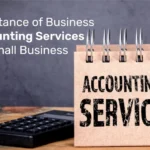Introduction
Is your home bursting at the seams with items you rarely use? Or perhaps you’re downsizing and struggling to find space for your beloved belongings? You’re not alone. Many people find themselves in need of extra storage space at some point. That’s where self-storage units come into play. In this guide, we’ll explore everything you need to know about self-storage, from selecting the right unit to maximizing the efficiency of your storage space. Whether you’re a homeowner, renter, or business owner, these tips will help you master the art of self-storage and reclaim your space.
Understanding Self Storage
Self-storage units are secure spaces rented out to individuals or businesses on a monthly basis. These units can vary in size and type, offering a flexible solution for storing a wide range of items. Think of them as an extension of your home or office, providing that much-needed extra space for things you don’t need on a daily basis.
Types of Self Storage Units
There are several types of self-storage units to choose from, each catering to different needs. Standard units are perfect for general items like furniture, boxes, and seasonal decor. Climate-controlled units maintain a consistent temperature and humidity level, ideal for sensitive items like electronics, artwork, and important documents. Drive-up units, on the other hand, offer the convenience of easy loading and unloading, making them a popular choice for businesses.
Why Use Self Storage?
Self storage in Bloomington il offer numerous benefits. They provide a cost-effective solution for decluttering your home, securing valuable items, and creating more living space. For businesses, storage units can help manage excess inventory, store important records, and keep equipment safe and organized. Additionally, they’re perfect for temporary storage during moves, renovations, or life transitions.
Is Self Storage Right for You?
Before committing to a self-storage unit, assess your needs. Take inventory of the items you plan to store and consider how often you’ll need access to them. Will you require a climate-controlled environment? Do you need a unit with extra security features? By answering these questions, you can determine if self-storage is the right solution for you.
Choosing the Right Storage Unit
Selecting the right storage unit is crucial for ensuring your items are safe and accessible. The following factors will guide you in making an informed decision.
Assessing Your Storage Needs
Start by identifying the items you plan to store. Measure larger items and estimate the total volume of your belongings. This will help you determine the size of the unit you’ll need. Most storage facilities offer a variety of unit sizes, so you’ll have plenty of options to choose from.
Location, Location, Location
The location of your storage unit is another important consideration. Choose a facility that’s easily accessible from your home or office. This will save you time and effort when you need to retrieve items. Also, consider the facility’s proximity to major roads and highways for added convenience.
Security Features to Look For
When it comes to storing your belongings, security is paramount. Look for storage facilities that offer features like 24/7 surveillance, gated access, and on-site management. These measures will help ensure your items are safe and secure.
Maximizing Storage Space
Once you’ve selected the perfect storage unit, it’s time to make the most of the space. Use these smart strategies to optimize your storage area.
Smart Packing Tips
Efficient packing is key to maximizing your storage space. Start by disassembling large items like furniture to save room. Use uniform-sized boxes to make stacking easier and label each box for easy identification. Place heavier items at the bottom and lighter ones on top to prevent damage.
Use Vertical Space
Take advantage of the vertical space in your storage unit by using shelving units. This will help keep your items organized and easily accessible. Store frequently used items at eye level and seasonal or less-used items on higher shelves.
Create a Clear Pathway
Organize your unit in a way that allows for easy access to all your items. Create a clear pathway down the center of the unit so you can reach items at the back without having to move everything around. This will make it easier to find and retrieve items when needed.
Maintaining Your Storage Unit
Keeping your storage unit clean and organized will ensure your items remain in good condition and are easy to access.
Regular Inspections
Perform regular inspections of your storage unit to check for any signs of damage or pests. Address any issues immediately to prevent further problems. It’s also a good idea to check the condition of your items periodically, especially if you’re storing valuable or sensitive items.
Rotating Items
To keep your storage unit organized and your items in good condition, rotate your items periodically. This is particularly important for items that are sensitive to temperature or humidity changes. By rotating your items, you can ensure that they remain in optimal condition.
Updating Your Inventory
Keep an updated inventory of the items in your storage unit. This will help you stay organized and make it easier to find specific items when needed. An inventory list can also be useful for insurance purposes.
Self Storage for Business
Businesses can greatly benefit from using self-storage units. Here’s how to make the most of storage solutions for your business needs.
Storing Inventory
For businesses that deal with physical products, managing inventory can be a challenge. Self-storage units provide a cost-effective solution for storing excess inventory, freeing up valuable office or retail space. Choose a storage facility with drive-up access to make loading and unloading inventory easier.
Archiving Documents
Storing important documents and records in a self-storage unit can help businesses stay organized and compliant with regulations. Opt for a climate-controlled unit to protect sensitive documents from temperature and humidity fluctuations.
Equipment Storage
For businesses that use large equipment or seasonal tools, self-storage units offer a secure place to store these items when not in use. This can help keep your workspace organized and free from clutter.
Self Storage for Homeowners
Homeowners can also benefit from the extra space provided by self-storage units. Here are some practical uses for home storage.
Seasonal Storage
Store seasonal items like holiday decorations, outdoor furniture, and sports equipment in a self-storage unit. This will free up space in your home and keep these items safe and organized until you need them again.
Home Renovations
If you’re planning a home renovation, a self-storage unit can provide a secure place to store your belongings during the process. This will protect your items from dust and damage and make it easier to work on your home.
Moving and Relocating
Self-storage units are invaluable during moves and relocations. They offer a temporary space to store your belongings while you transition to your new home. Use this time to declutter and organize your items before moving them into your new space.
Self Storage Tips and Tricks
To make the most of your self-storage experience, consider these additional tips and tricks.
Label Everything
Clearly label all your boxes and containers to make it easier to find items when you need them. Use a detailed labeling system that includes the contents of each box and the room it belongs to.
Protect Fragile Items
Use bubble wrap, packing paper, and sturdy boxes to protect fragile items. Store these items on top of heavier items to prevent damage, and consider using blankets or padding for extra protection.
Climate Control Considerations
If you’re storing items that are sensitive to temperature and humidity changes, opt for a climate-controlled unit. This will help protect your belongings from damage caused by extreme temperatures and moisture.
Conclusion
Self-storage units offer a versatile and cost-effective solution for managing your belongings, whether you’re a homeowner, renter, or business owner. By understanding the different types of units available, assessing your storage needs, and following best practices for packing and organization, you can make the most of your storage space and enjoy a clutter-free life.










